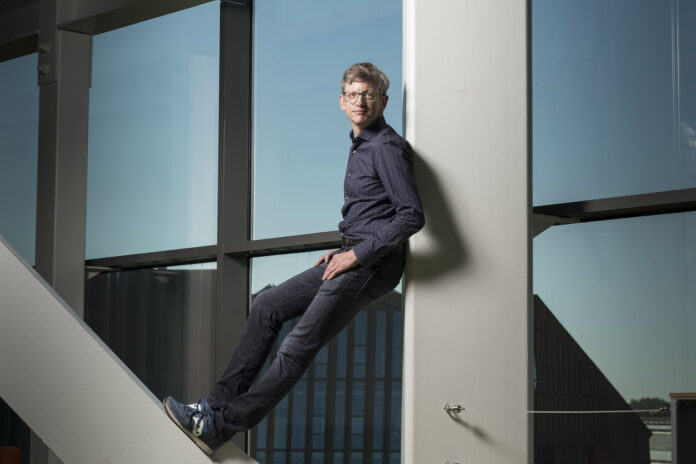Getting your PhD in the Netherlands is nothing more than a fancy diploma presentation, says columnist Dirk-Jan Scheffers. There’s nothing substantial about it. He thinks things could be different and better.
Huzzah! Recently, the campaign #everyoneprofessor was introduced at the UG. This means that everyone who supervises PhD students is now eligible for ius promovendi, the right to promote them.
It’s a real result after years of campaigning by Marie-José van Tol (chair of The Young Academy) and Kees Storm (dean at the Technical University of Eindhoven), who were awarded an Akademiekus for their efforts earlier this year. This is an award for people who made a special and courageous contribution to the academic world.
Dean Joost Frenken with the Faculty of Science and Engineering argued in favour of an expansion of the promotion rights at an #everyoneprofessor symposium, two weeks before the UG announced its decision. Frenken thought expanding the ius was more important than the question of who got to wear a toga. I was talking about this with a colleague recently, and they said they didn’t want anyone to wear a toga. It would save us all a lot of hassle.
They have a point. Dutch PhD ceremonies are highly performative. After the thesis has been approved, it’s pretty impossible for a candidate to fail. The only thing that’s still uncertain is whether they’ll graduate cum laude or not. I actually think it’s fairly likely that the concept of cum laude will soon be abolished.
Opponents tend to ask questions about the thesis cover
The PhD ceremony, therefore, is just a fancy diploma presentation, a lovely but time-consuming performance. In addition to the two promoters, there are five other people on the committee, which has exactly 45 minutes to ask questions of the candidate.
That’s not enough time to really get into things, which is why very few opponents actually prepare properly. Instead, they tend to ask about the thesis cover, about non-academic statements, or they come up with the most asinine question of all: ‘If you had another four years, what would you do?’
Whenever I head up a committee, I don’t even read the thesis. If I’m meant to be asking questions, I read at least the summary and a single chapter. If I’m part of the assessment committee, I read the whole thing.
That means being part of a PhD ceremony takes me at least half a day to prepare. Last year, I was on eight committees in Groningen alone. That’s an entire week’s worth of work; time I could have spent supervising PhD students.
Last year, I was on eight committees in Groningen alone, a full work week
Earlier this month, I was an examiner in the United Kingdom. At their ceremonies, the PhD candidate is subjected to a two-hour interview about their thesis. This takes place in private. Even though preparing for this is more time-consuming, it’s more fun, since you can really get into it.
Because there are only two examiners, you don’t get to talk as much. If the graduate so desires, they can attend a beautiful ceremony – the Brits wear togas in many different colours – to pick up their diploma.
Couldn’t we do something like that in Groningen? I know we’d be breaking with tradition, but considering the work stress, I’m not sure whether keeping it up is even feasible. It would also help the UG’s financial issues.
First of all, it would save hours and hours of expensive employee costs. Second of all, it would free up the auditorium, a beautiful location that’s often tied up with PhD ceremonies that don’t attract that many visitors. We could rent it out for diploma presentations from our commercial counterpart the AOG School of Management, or for conferences.
DIRK-JAN SCHEFFERS




